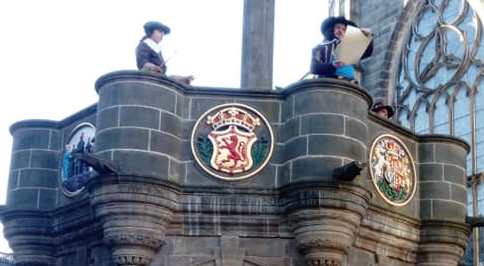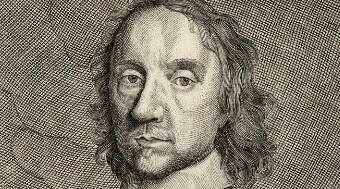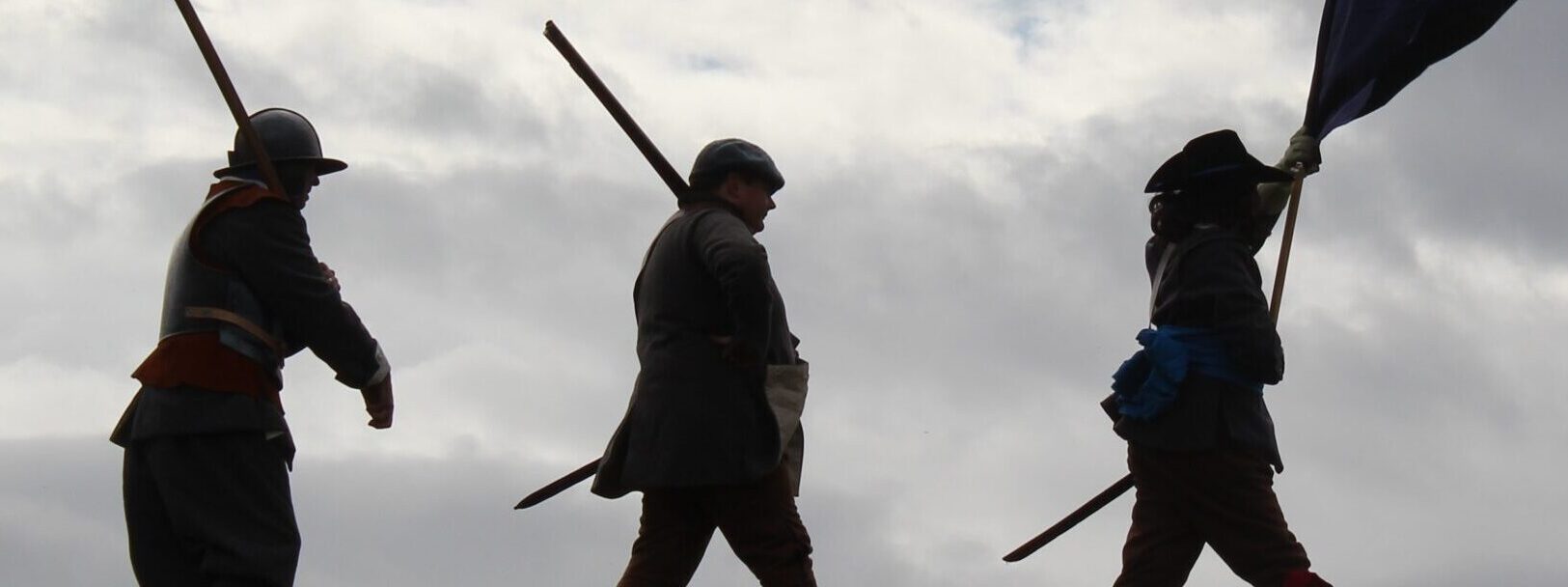The Civil War
In the middle of the 17th century civil war raged across Britain. For most of the time the Scottish government was allied to the English Parliament against King Charles the First. Scottish armies fought against the king’s interests in England and Ireland, as well as defending against royalist challenges within Scotland too.
The King is Dead: Long Live the King!
The king was defeated in 1645 but the victorious English Parliament did not know what to do with him. In January 1649 they executed King Charles at Whitehall. As Charles was also king of Scotland, many Scots were appalled. They agreed to allow his son to be proclaimed as King Charles the Second. The English Parliament, now a republic, saw this as a serious threat.

Allies become Enemies
The senior general in England, Thomas Fairfax, refused to march against his former allies and resigned. Oliver Cromwell was given his command. Cromwell was fast becoming the dominant force in the new ‘Commonwealth of England’. Recently victorious in Ireland, he had a battle-hardened and confident army ready to march into Scotland.
Cromwell reaches Dunbar
The Commonwealth army crossed the Border on 22 July 1650. It hoped to win a quick victory and force the Scots to abandon the new king’s cause. Cromwell hoped to take advantage of disagreements between the Scots, some of whom were more afraid of their own royalists than Cromwell’s republicans. The army occupied Dunbar. From here you can see the Old Harbour, which became Cromwell’s main supply base.

Failure in Edinburgh
Cromwell’s hopes of a swift victory were dashed by the Scottish general David Leslie. The two commanders had fought side-by-side at the Battle of Marston Moor in England. Leslie had prepared defences at Edinburgh and Leith which Cromwell could not attack. The men of East Lothian had been ordered to leave their homes, taking with them anything the enemy might need.
The Return to Dunbar
After falling back to Dunbar to receive more supplies, Cromwell marched on Edinburgh again. The Scots were cautious and stayed in very strong positions. The weather was terrible, supplies were low, and some of Cromwell’s men were falling sick. He was forced to retreat once more to Dunbar and was attacked along the way at Haddington. When Cromwell’s army reached Dunbar again on 2nd September the men were tired but not yet beaten. The Scots followed them and scented victory…

